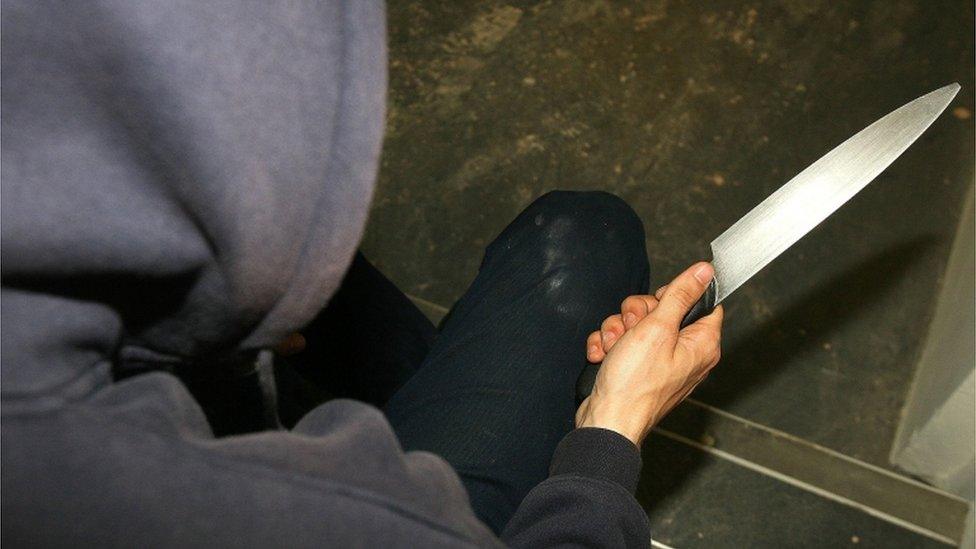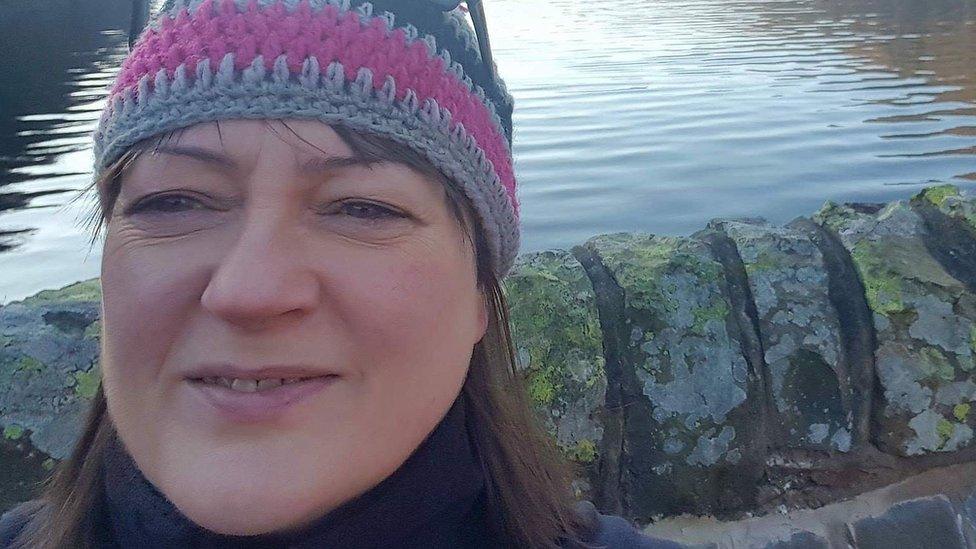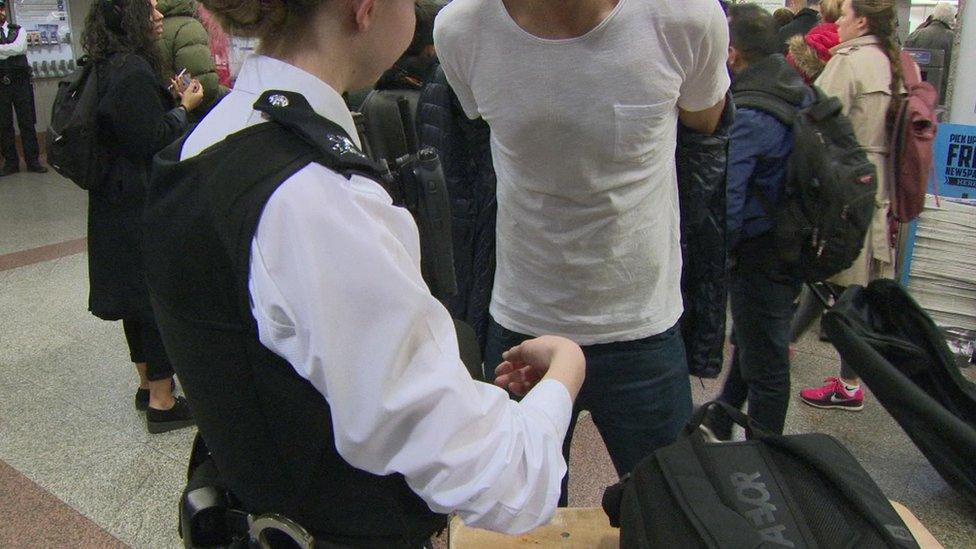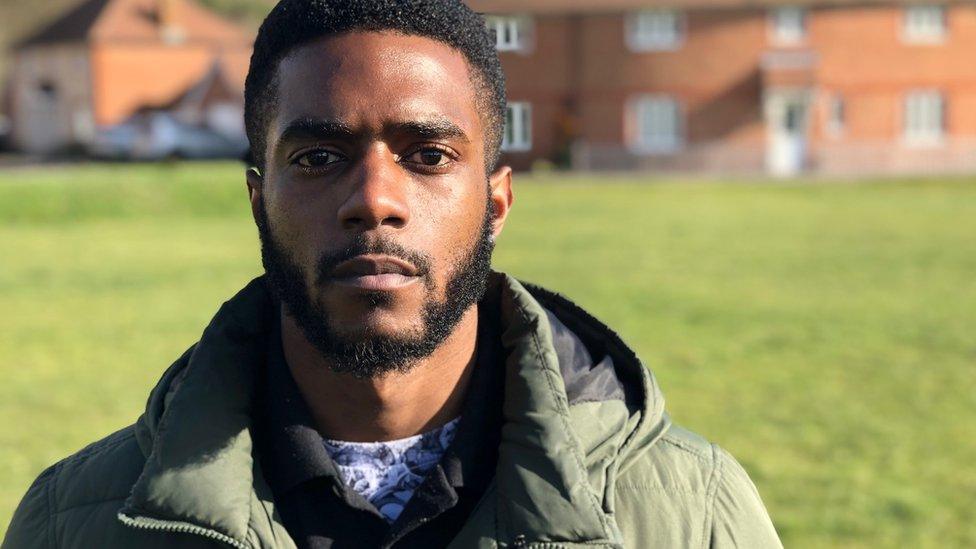Schools and NHS could be held accountable over youth crime
- Published

Home Secretary Sajid Javid wants to make it a legal duty to report concerns over at-risk young people
Teachers, NHS workers and police officers in England and Wales could be held accountable for failing to spot violent crime among young people under government plans announced on Monday.
Home Secretary Sajid Javid has launched a consultation to assess whether there is a "public health duty" to report concerns over children at risk.
He said he will use "all the tools" at his disposal to end violent crime.
But unions for teachers and NHS staff have raised concerns about the plans.
A summit on serious youth violence is being held at Downing Street this week.
Dr Mary Bousted, joint general secretary of the National Education Union, said: "Neither the blame for, or the solution to, violent crime can be laid at the door of schools or front-line hospital staff."
She said schools already had "strong safeguarding practices in place" and added: "The problem is what happens after issues of concern have been identified."
The Royal College of Nursing, meanwhile, expressed concerns that obligations to report people involved in violent crime could deter people "from seeking help for fear of being reported".
The government says its plan is intended to "help spot the warning signs that a young person could be in danger, such as presenting in A&E with suspicious injury, to worrying behaviour at school or issues at home".
Mr Javid called violent crime "a disease rotting our society" and said he was "committed to ending this scourge".
"The public health, multi-agency approach has a proven track record and I'm confident that making it a legal duty will help stop this senseless violence and create long-term change," he added.
Speaking to BBC Radio 4's Today programme, Children's Commissioner for England Anne Longfield said agencies such as schools "don't often feel that they've got the tools or the systems" to know what to do with children who might be involved in, or at risk of, violent crime.
She added: "We've got to think of more creative and effective ways to help these children."

What do teachers think of the youth crime proposals?

Teachers' leaders are highly sceptical about these knife crime proposals - suggesting it's a way of avoiding thornier questions such as the number of police on the streets.
Heads and teachers say they don't understand how in practice schools would be held "accountable" for reporting those at risk of knife crime.
"It is hard to see how it would be either workable or reasonable to make teachers accountable," says Geoff Barton, leader of the ASCL head teachers' union.
"What sort of behaviour would they be expected to report and who would they report to?" he says.
Schools are at risk of getting caught in a blame-game over knife crime, says Chris Keates, leader of the NASUWT teachers' union, who warns of teachers being "scapegoated".
If teachers were to face sanctions over spotting those at risk, she says it would create a "culture of defensive reporting", in which the police and social services would be swamped by referrals.

Majella Fergus, 53, a biology teacher at a secondary school in Cumbria, told the BBC that in recent years both the government and parents had tried to transfer their responsibilities "onto the shoulders of teachers".
"Adding yet another non-teaching responsibility to the shoulders of strained teachers and squashed teaching time grinds us down further," she said.
"Knife crime is a much wider societal issue and it isn't just simply going to be fought by teachers."

Majella Fergus told the BBC she felt the government was trying to shirk its responsibilities
The Home Office announcement comes a day after Mr Javid handed the police greater stop and search powers to tackle rising knife crime in England.
With 285 deaths from stabbings in 2017-18, the most ever recorded in the UK, ministers have come under increasing pressure to tackle knife crime.
As well as hosting the summit on youth violence in England and Wales, which starts on Monday, Prime Minister Theresa May will meet privately with families affected by knife crime.
Mrs May said that while strong law enforcement "plays an important role", she added that communities need to look at what they can do to safeguard young people.
"That is why our plans to introduce a whole community - or 'public health' - approach are designed to identify more young people at risk," she said.
More than 100 experts will meet at Downing Street during the week to discuss the issue.
The consultation, which is open to the public and professionals across the UK, will run until May 28.
- Published31 March 2019

- Published18 July 2019
- Published13 February 2019
